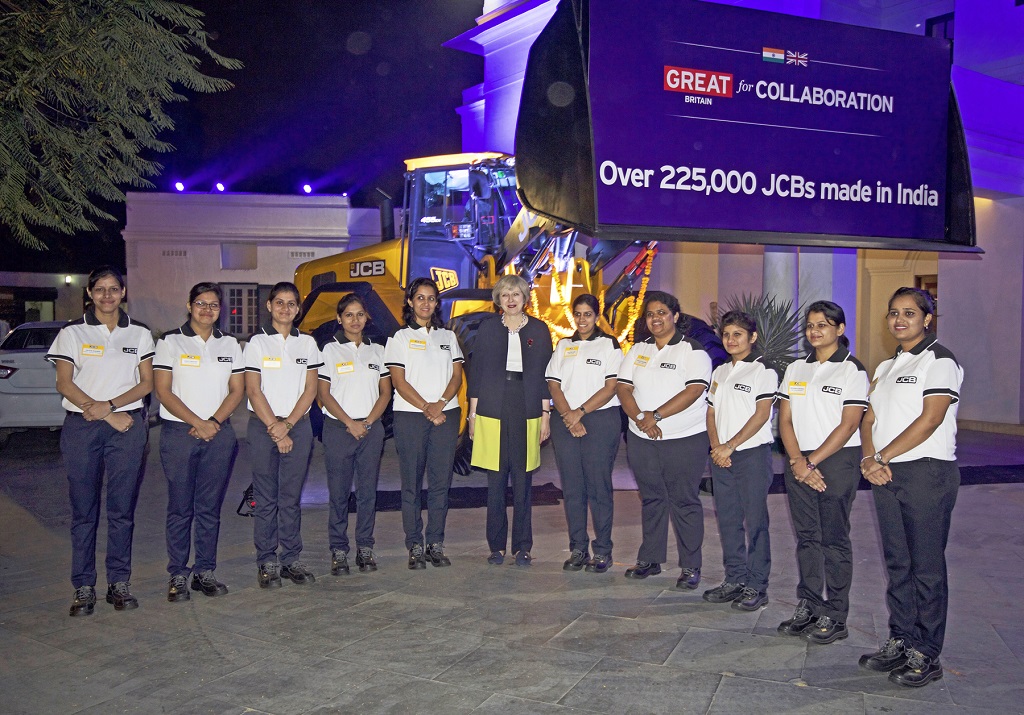The UK’s Prime Minister Theresa May was given an insight into a transformation taking place at JCB India’s plants today by 10 women engineers at New Delhi.
JCB began producing Earthmoving and Construction equipment in India nearly 40 years ago at a single factory in Delhi. Today the company has four other plants in Pune and Jaipur – with women playing an increasingly significant role in heavy engineering and manufacturing. Products made in these world class factories are not only for the Indian market but are also exported the world over.
During the first leg of her tour of India, Mrs May met 10 of the ground-breaking women engineers at JCB who are driving this change in a traditionally male dominated industry.
JCB India Managing Director and CEO, Vipin Sondhi said: “JCB was a pioneer in introducing Earthmoving and Construction equipment in India nearly four decades ago. Today we are transforming the way in which we recruit, by challenging the perception that manufacturing is only a male centric career option. We actively encourage women to take up key roles in manufacturing and heavy engineering in our businesses.”
Priyanka Bansal, Divya Patsariya, and Kavita Verma, all work at JCB’s plant at Delhi, which also is the world’s largest factory for Backhoe Loaders. Ashwini Pingalkar, Anjitha Nair and Snehal Kulkarni are employed in JCB’s Pune Factory which manufactures Heavy Products. While Diksha Sharma, Jyoti Sen, Deepti Raghav, and Renu Ataria all work in key manufacturing roles at JCB’s newest plant in Jaipur, where women make up 25% of the workforce. All these ambitious young women met the Prime Minister today.
Vipin Sondhi added: “The recruitment of these talented ladies into manufacturing and heavy engineering roles is something we have been doing for a number of years now. Some of our women engineers have been with us for over seven years and the recruitment of women into these roles is taking on a new impetus as we expand.
“They join us after their Diploma or Engineering courses and undergo specialist in-house trainings which give them the necessary skills for excelling in their jobs. They work and contribute in factories that make products of One Global Quality. JCB has made a positive difference to their lives and they have become role models in their villages and hometowns, which in some cases are up to 1000kms away from where they now work and live.”



